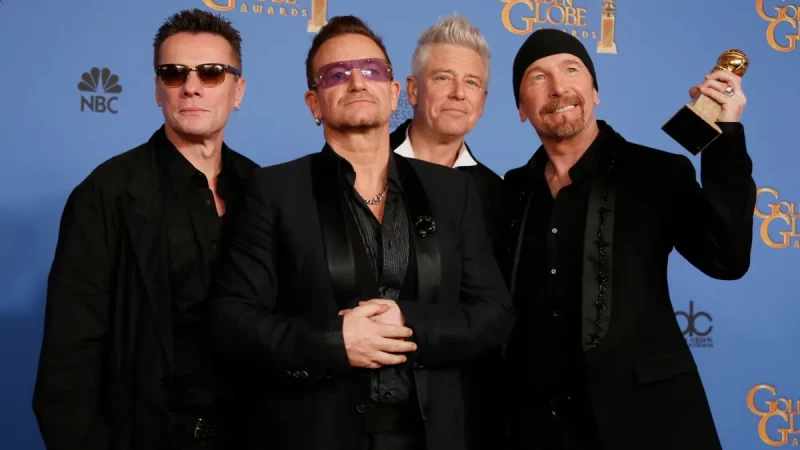MIT bars ‘fearless’ class president from graduation ceremony over pro-Palestine speech
The Massachusetts Institute of Technology (MIT) has barred its class of 2025 president, Megha Vemuri, from her graduation ceremony after she took the stage on Thursday to speak up about the genocide in Gaza.
Vemuri told CNN that after her speech at the OneMIT Commencement Ceremony, she was not allowed to attend Friday’s commencement ceremony and was barred from campus until the event concluded. She will still receive her degree.
At Thursday’s event in Cambridge, Massachusetts, Vemuri took to the podium with a keffiyeh draped over her graduation robe and praised her peers for protesting Israel’s assault on Gaza. She also criticised her university’s ties to Israel.
The speech was shared online by the Palestinian Youth Movement, among many other publications and pages.
“As scientists, engineers, academics and leaders, we have a commitment to support life, support aid efforts and call for an arms embargo and keep demanding now as alumni, that MIT cuts the ties,” Vemuri said.
“Right now, while we prepare to graduate and move forward with our lives, there are no universities left in Gaza. We are watching Israel try to wipe out Palestine off the face of the earth, and it is a shame that MIT is a part of it,” she added.
Israel’s war on Gaza has killed well over 53,000 people since October 7, 2023.
Vemuri mentioned that the undergraduate body voted in favour of the university cutting ties with Israel, and faced “threats, intimidation and suppression from all directions, especially university officials”.
“But you prevailed because the MIT community that I know would never tolerate genocide,” Vemuri said. She then urged her classmates to partake in the MIT tradition of turning their class rings that bear the university mascot ‘Tim the Beaver’.
“And as you lift it off your fingers, notice that the beaver is no longer facing you, it is now facing the world,” Vemuri said. “This is a world that we will be entering with an immeasurable responsibility. We will carry with us the stamp of the MIT name, the same name that is directly complicit in the ongoing genocide of the Palestinian people. And so we carry with us the obligation to do everything we can to stop it.”
Immediately after her speech, MIT President Sally Kornbluth took to the podium to say, “Listen, folks, at MIT, we value freedom of expression, but today’s about the graduates.” According to an MIT spokesperson, Vemuri’s speech was not the one provided to the institution in advance.
“MIT supports free expression but stands by its decision, which was in response to the individual deliberately and repeatedly misleading Commencement organisers and leading a protest from the stage, disrupting an important Institute ceremony,” the spokesperson said in a statement to CNN.
“I see no need for me to walk across the stage of an institution that is complicit in this genocide,” Vemuri told the outlet in response. “I am, however, disappointed that MIT’s officials massively overstepped their roles to punish me without merit or due process, with no indication of any specific policy broken,” she added, calling MIT’s purported support of free speech hypocritical.
Many online commended her for taking a firm stance against the institution, the censorship, and of course, Israel.

“‘We are watching Israel try to wipe Palestine off the face of the earth.’ MIT Class President Megha Vemuri condemns Israel during her graduation speech. The students are standing up for Palestine, yet again. Shame on everyone who’s silent,” wrote a user on X.
“Megha Vemuri is a hero!” one lauded.

“Proud of this young lady for being fearless to take a righteous stand at a time when such moral clarity and boldness are becoming rare. Wishing you a brilliant future,” another added.


Many called Vemuri “bold” and “inspiring”, yet several people from India, the country her parents are from, termed Vemuri’s brave step “selective activism”, accusing her of not speaking up about Pahalgam and other tragedies. To this, many users also came to her defence.

A user shared screenshots of the kind of hatred Vemuri was being subjected to from fellow Indians. “On this platform, the attacks on Megha Vemuri, particularly by Indians, have been relentless and shameful. South Asians: let’ support our young people like Megha, Shruti Kumar, Asna Tabassum and so many others who are using their platforms to centre Gaza,” the user urged.

“A brave girl being ridiculed and shot down by most of her own,” another added. “How they jeer that she won’t be able to find a job and that she is brainwashed and all that Jazz. I say she is the only sane one. I say remember that name Megha Vemuri. An asset to any organisation she leads.”

One user said Vemuri showed “tremendous courage” in speaking up for victims of genocide and “holding forth the torch of protest at a great injustice.”
Tensions over university protests against the war on Gaza have come to a head at this year’s graduation ceremonies. New York University recently said it was withholding the diploma of a student who condemned the genocide in Gaza while delivering a graduation speech.
Free speech is under attack at many varsities across the country. On May 22, the US Department of Homeland Security stripped Harvard University of its Student and Exchange Visitor Programme certification, jeopardising the visas of the nearly 6,800 international students who make up 27 per cent of the student body. Harvard’s refusal to bow down to Trump administration demands to shut down its DEI initiatives, among other things landed it in hot water with the government. The next morning, Harvard sued and won a temporary restraining order.
Following this, the US president’s administration ordered an indefinite halt to new student visa interviews while considering foreign students to undergo social media vetting as part of their application to study in the US. At the heart of the backlash is a growing concern that the move isn’t about national security at all — it’s about silencing dissent.
US campuses have, for months, been epicentres of pro-Palestine student protests, with young activists demanding divestment, accountability, and an end to the US government’s complicity in Israel’s assault on Gaza. Earlier this month, Columbia suspended over 65 students for staging a pro-Palestine demonstration in its library.
Alongside students at NYU, Harvard, Columbia and other universities across the United States, MIT students had also set up protest encampments last spring to denounce Israel’s war on Gaza, facing disciplinary threats from the university.
Vemuri’s speech was not just brave — it was necessary at a time when voices of conscience are being punished. Her decision to use the MIT stage to condemn Israel’s war crimes in Gaza and call out institutional complicity comes amid a disturbing crackdown on free speech across US campuses.
As student protests face police crackdowns, expulsions, and visa threats, Vemuri risked not just her graduation moment but her future, standing tall for over 53,000 lives lost in Gaza and the erasure of Palestinian academic life. In an environment increasingly hostile to dissent, especially when it challenges Western-backed violence, her moral clarity cuts through the noise. It is acts like hers that remind us silence is not neutrality — it is complicity.
At a time when speaking up is being penalised and voices are being suppressed, to use a once-in-a-lifetime opportunity to speak is incredibly brave.















Comments